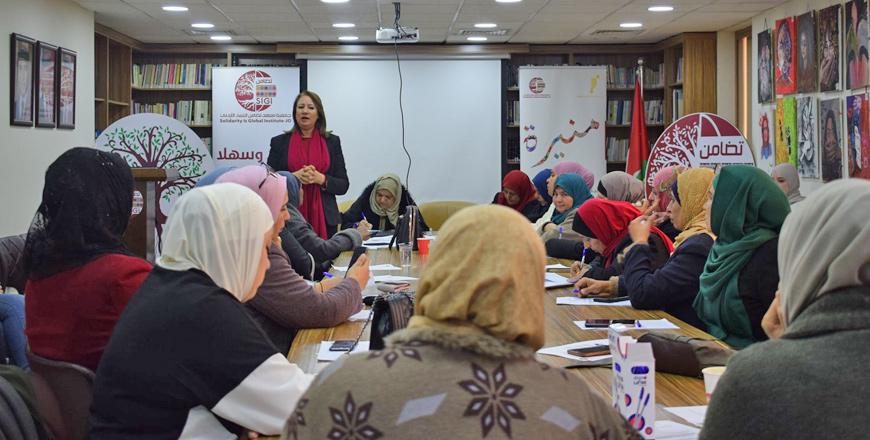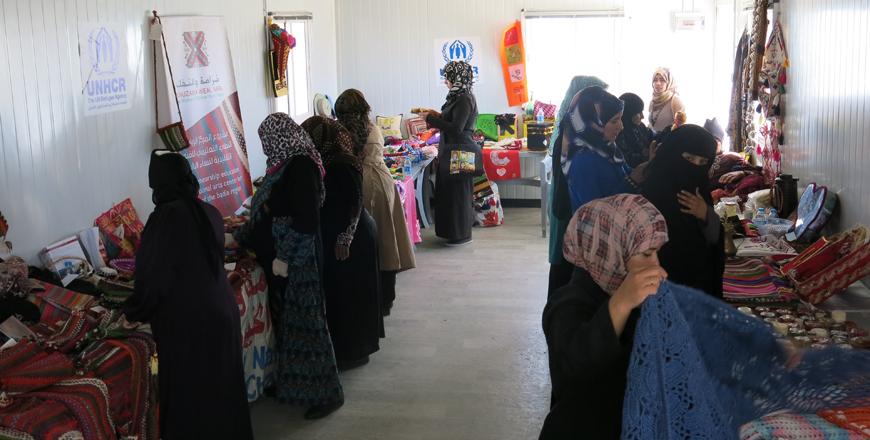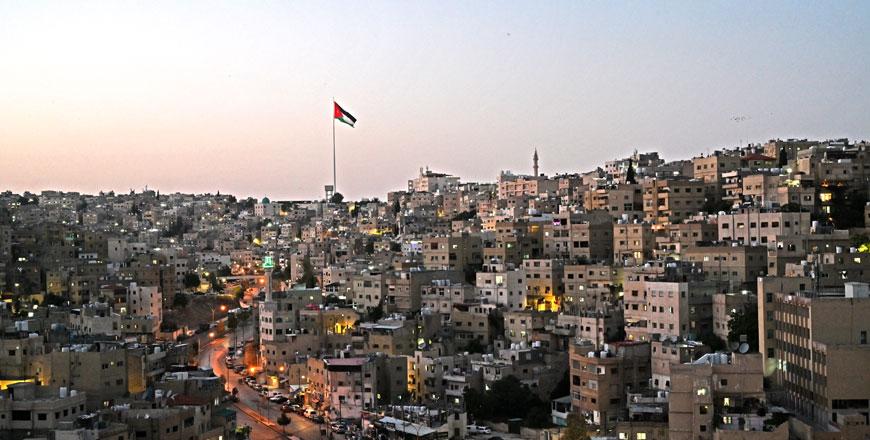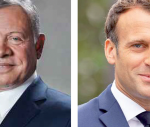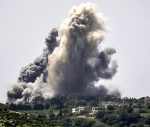You are here
Syrian refugee women break the chain of child marriage
Jun 04,2023 - Last updated at Jun 04,2023
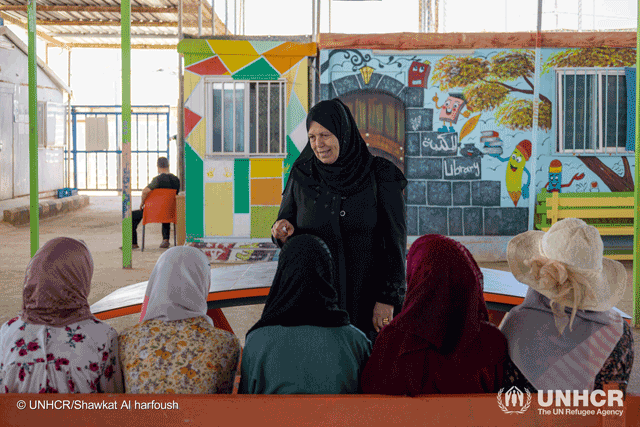
Shokreh Al Masalmeh sharing her personal experience on child marriage at a community centre in Zaatari refugee camp (Photo courtesy of UNHCR/Shawkat Al Harfoush)
AMMAN — In Zaatari refugee camp, two Syrian women, Shokreh Al Masalmeh and Ghada Al Qablawiare, have emerged as vigorous advocates against child marriage because of its far-reaching effects. Determined to bring about change within their community, they have become beacons of hope, striving to empower girls and women to make their own decisions.
Child marriage, a deeply entrenched practice, continues to afflict the lives of many young girls in Zaatari. Despite efforts to end this harmful tradition, approximately one in five girls in the camp are married before they reach adulthood.
Child marriage is a violation of human rights and poses grave risks to the physical and mental well-being of girls.
Shokreh and Ghada know first-hand what hardships and limitations such unions impose on women.
“I arrived with my family at Zaatari camp 10 years ago from Syria, thinking we would stay for a couple of weeks, but weeks turned into months and months into years,” says Shokreh. “The safety of my daughter became a concern, and we made the difficult decision to arrange her marriage outside the camp.”
Soon Shokreh would regret this step. “I know we made a mistake, and now I advocate against child marriage,” she adds.
Shokreh’s daughter faced abuse, health complications, and the burden of motherhood at an age when she should have been focused on her education and personal growth.
This painful experience ignited a fire within Shokreh, compelling her to advocate against child marriage and protect girls from a similar fate.
“I refuse to let my daughter become a victim of child marriage,” says Ghada, also from Syria. “I have witnessed the devastating consequences, and I want to raise awareness about the dangers, particularly marriages among relatives,” she says. “Education is the key to empowering girls and preparing them for a brighter future”.
United by their shared experiences, they have transformed their past into a driving force for change. Through their advocacy work, they aim to change the behaviour of their community and provide support and resources for girls at risk.
These two women, armed with courage and resilience, are raising awareness in Zaatari camp. Shokreh and Ghada are working to shine light on the grave consequences of child marriage and provide a platform for survivors to share their stories.
The involvement of men and boys in this advocacy work is crucial. “Men speak to other men, raising awareness in mosques and during home visits, while boys participate in campaigns against child marriage,” says Shokreh. By engaging the entire community, these women aim to foster gender equality and end the cycle of child marriage.
Although they know that behavioural changes do not happen overnight, they are hopeful that there will be fewer child marriages at Zaatari camp in the future. Some signs of progress are beginning to emerge. More and more families accept the dangers associated with child marriage. Instances of child marriage are decreasing, and the community is increasingly receptive to the idea of girls pursuing education.
Since the establishment of the camp, UNHCR, the UN Refugee Agency, has been working on documenting marriages at Zaatari camp and organising awareness raising on child marriage among the community, especially refugee women. For UNHCR it is not only about awareness raising but also individual counselling. In Zaatari camp both parents and children receive protection counselling from case managers, and they receive similar advice from the family court judges as soon as they approach the courts with the intention to get married.
“UNHCR is collaborating with partners and the family court at Zaatari camp to advocate on the pressures on children getting married, the responsibilities, and making sure that spouses and parents have a clear picture of the consequences of child marriage,” says Adam Nord, UNHCR Protection Officer. “The next step we can do to protect the children involved in child marriage and especially young girls is to ensure that all marriages are documented and registered,” he says.
In 2022, UNHCR set a further objective to empower refugees, especially women, and let them lead the change within their communities.
The journey to end child marriage in Zaatari camp is challenging, but these resilient women are fanning a flame of hope. They dream of a future where every girl is free to pursue her dreams and shape her own destiny. Shokreh and Ghada envision a society where the voices of young girls are heard, valued, and respected. And though their time in Zaatari camp may be temporary, their dedication to the cause remains unwavering.
Through their courage and determination, these refugee women are breaking the chains of child marriage, paving the way for a brighter future and inspiring change in Zaatari camp and beyond. Their story serves as a testament to the power of resilience, unity, and the indomitable spirit of women determined to make a difference.
UNHCR contributed this story to The Jordan Times
Related Articles
AMMAN — Solidarity is Global Institute (SIGI) on Sunday launched a national coalition to promote reproductive health rights and combat viole
Ghada is a Syrian refugee in her 40s who fled with her family to Jordan after their home in Daraa was destroyed in a bombing. She is we
AMMAN — Men and youth should join hands with the women’s movement in advocating for reproductive rights and combatting early marriage and ge


